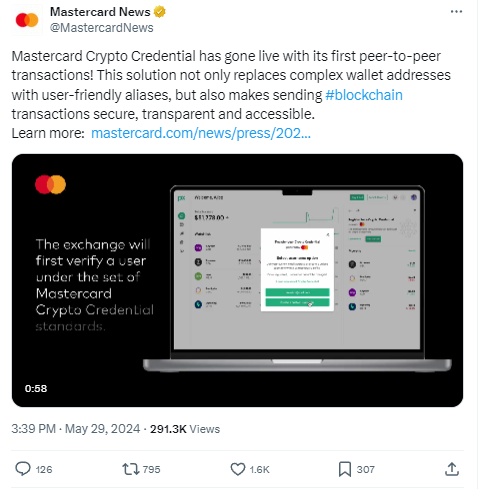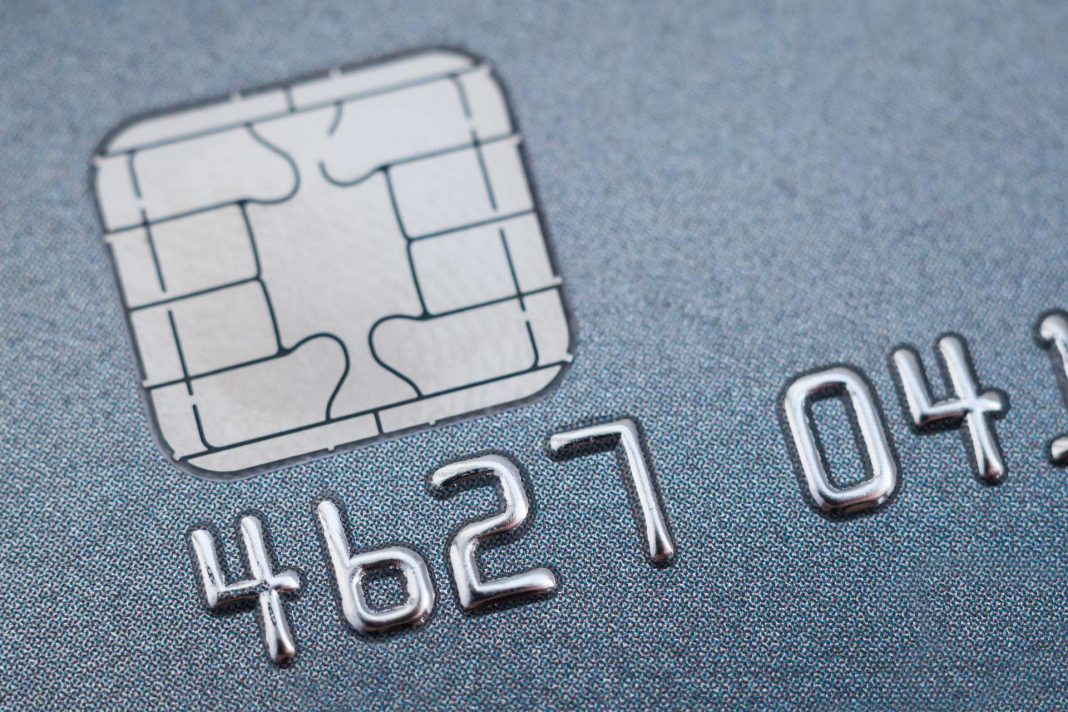Mastercard has introduced its new Crypto Credential service, making peer-to-peer crypto transfers more accessible for everyday users.
The users of supported crypto exchanges can send and receive digital assets using a Mastercard Crypto Credential Alias instead of traditional blockchain addresses, which are often long and confusing strings of random numbers and letters.
Remember the name
According to Mastercard, the Crypto Credential service not only replaces complex wallet addresses with more user-friendly aliases but also raising the security, transparency, and accessibility of blockchain transactions.

The process begins with Mastercard verifying users according to its standards, after which users receive an alias from the company.
When users send crypto, the program checks that the alias is valid and that the recipient’s network address supports the transaction’s associated token and blockchain.
If the recipient’s address does not support the sender’s asset or network, the transaction will not proceed, preventing the loss of funds due to user mistakes.
Many hopes aliases can help protect against the so called address poisoning scams, where attackers deceive users into sending coins to addresses that closely resemble their own.
Third party exchanges, fourth party service
The service is currently available on the Bit2Me, Lirium, and Mercado Bitcoin exchanges, and will soon be accessible in countries such as Brazil, Chile, France, Guatemala, Mexico, Panama, Paraguay, Peru, Portugal, Spain, Switzerland, and Uruguay.
Mastercard’s spokesperson mentioned that more European countries will be included in the future.
Mastercard’s entry into the crypto space with this service is significant, though it presents an interesting contrast to the original peer-to-peer ethos of blockchain technology.
By acting as a fourth party in transactions, with third-party exchanges utilizing its service, Mastercard offers a user-friendly solution that simplifies the process but that is pretty far from the decentralized nature that blockchain enthusiasts cheering.
The Crypto Credential service is set to support a variety of use cases beyond peer-to-peer transactions.
Mastercard mentioned the potential extensions to NFTs, ticketing, and other payment solutions depending on market demands and compliance requirements.
The service also includes wallet support from Foxbit and Lulubit, the latter benefiting from its integration with the Lirium exchange.
Monitoring the personal finance
Martin Kopacz, chief operating officer of Lirium, stated that the Mastercard Crypto Credential ensures traceability of all blockchain transactions with a higher level of compliance while providing an exceptional user experience.
Earlier this month, Mastercard joined a consortium of major banks to test distributed ledger technology for settling digital asset transfers, involving assets such as commercial bank money, US treasuries, central bank money, and investment-grade debt, typically traded using separate systems.
Mastercard’s ongoing efforts to integrate blockchain technology into its services is a clear sign of the growing acceptance of digital assets in traditional finance.
Most of the experts say this will eventually lead to wider adoption and bigger usage.


